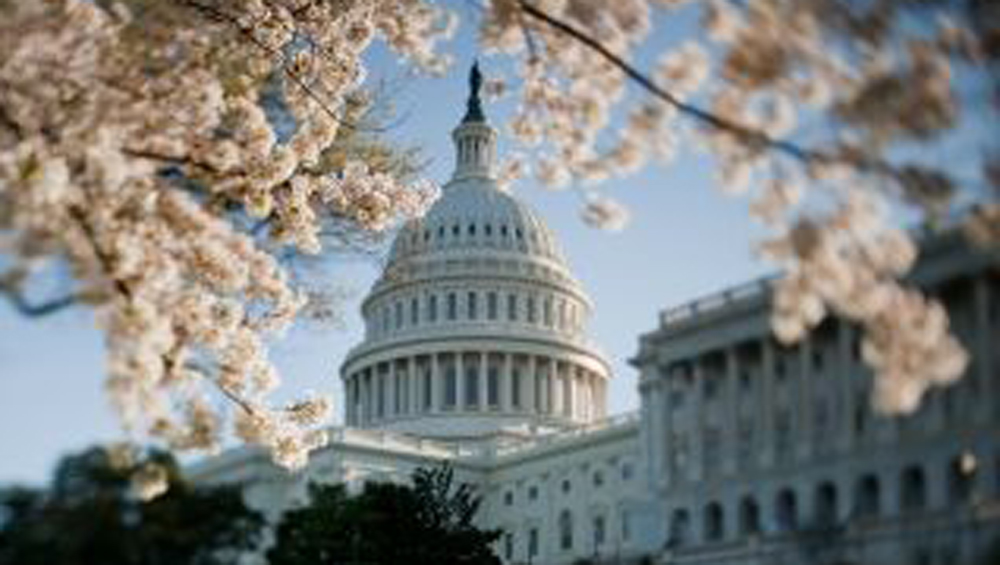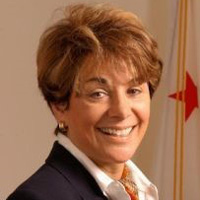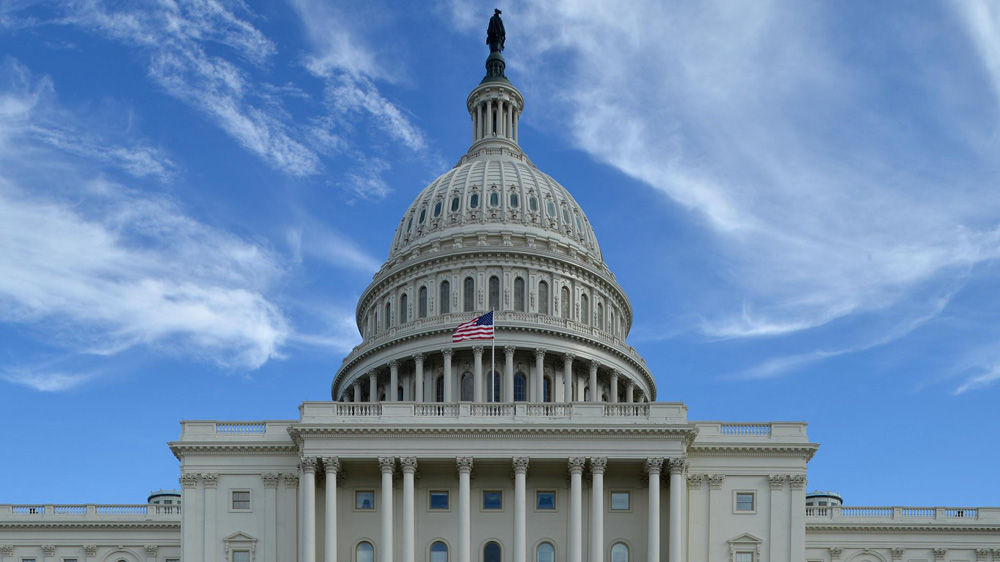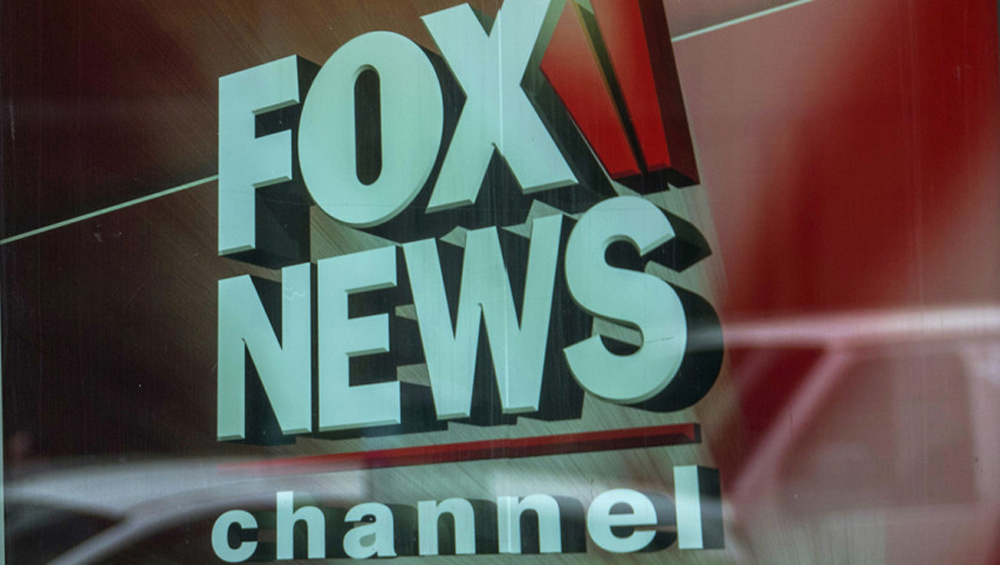
A new bipartisan bill would establish a commission to explore potential regulations for artificial intelligence. The National AI Commission Act — introduced by Reps. Ted Lieu (D-Calif.), Ken Buck (R-Colo.) and Anna Eshoo (D-Calif.) — calls for establishing a 20-member panel that would be tasked with reviewing the current approach to regulation, and developing a “risk-based framework” for the technology.

Rep. Anna Eshoo (D-Calif.) and Sen. Sheldon Whitehouse (D-R.I.) have reintroduced House and Senate versions of the Commercial Advertisement Loudness Mitigation (CALM) Modernization Act, which would extend limits on TV commercial ad loudness to ads on streaming services. Their 2010 CALM Act directed the FCC to ensure that ads on TV were not louder than the surrounding programming.

Rep. Anna Eshoo (D-Calif.), the moving force behind the CALM Act, which limits the loudness of TV commercials, has joined with Sen. Sheldon Whitehouse (D-R.I.) to introduce the Commercial Advertisement Loudness Mitigation (CALM) Modernization Act, which would update the 2010 law limiting the loudness of TV ads, extending it to include streaming services, as well as beef up the FCC’s ability to go after violations and mandate a study of the effectiveness of the law to date.

Two House Democrats from California, Reps. Anna Eshoo and Zoe Lofgren, have reintroduced a sweeping privacy bill that would impose broad restrictions on companies’ ability to use online data for ad targeting.

Rep. Anna Eshoo (D-Calif.) wants some answers from the FCC about enforcement of her CALM Act legislation that regulates the volume of TV commercials. In a letter to acting FCC Chairwoman Jessica Rosenworcel, Eshoo was looking for satisfaction she suggested she did not get from the former Republican FCC.

A bipartisan pair of legislators has introduced the Modern Television Act of 2021 that would eliminate some “outdated” regulations including the must carry-retransmission consent regime that broadcasters use to secure payments from MVPDs for their local programming/signals and the compulsory copyright license. Broadcasters were not happy, while MVPDs were pleased with the prospect of must-carry going away, which they have long argued was a thumb on the scale for broadcasters, who can demand carriage, though it means they can’t negotiate payment.
Hey, Democrats: Hands Off Fox News’s Cable Carriers

Erik Wemple: “The insertion of Congress into the contractual relationships of video providers with particular news/propaganda outlets is frightening. Asking questions is a protected activity, of course — one that lawmakers use all the time. Yet these questions feel a lot like coercion by government officials, an incursion into the cultural promise of the First Amendment.”

Rep. Anna Eshoo (D-Calif.) and a baker’s dozen of Democratic members of the California congressional delegation have called on attorney general nominee Merrick Garland to make net neutrality one of his first orders of business in the new post. Garland has been a judge on the U.S. Court of Appeals for the D.C. Circuit, which has principle oversight of FCC decisions like the elimination of net neutrality rules.

A bill that would limit the president — of either party’s — ability to “shut down the internet” has been introduced. The bill, from Reps. Anna Eshoo (D-Calif.) and Morgan Griffith (R-Va.), would limit the president’s power to “control or shut down communications networks, including the internet.”

The second-ranking House Republican and a key Democrat say they’ll push to end broadcasters’ ability to black out signals during negotiations with cable and satellite service providers.
Republican Whip Steve Scalise and senior Energy and Commerce Committee member Anna Eshoo said Monday they will unveil a bill in the coming weeks. It’s likely to set off a fierce lobbying battle between broadcasters, which would lose negotiating leverage, and cable providers, which stand to benefit.
Outside tech advocates have been warning Congress for weeks against including any provisions targeting net neutrality in a final spending bill, but one Democrat is raising alarms about another potential provision aimed at separate FCC rules. Rep. Anna Eshoo (D-Calif.) called on appropriators to not alter TV ownership rules the FCC passed last year, which deal with joint sales agreements between broadcast stations.
Republican appropriators “really screwed” the Fcc in the appropriations process, Rep. Anna Eshoo (D-Calif.) said during an oversight hearing Tuesday. Eshoo, the ranking member of the House Energy and Commerce subcommittee on communications and technology, lamented the proposed $25 million cuts to the FCC’s budget in the House Financial Services and General Government appropriations bill, as well as the policy riders that would temporarily block enforcement of net neutrality rules.
Reps. Joe Barton and Anna Eshoo especially want to know how many LPTVs and translators — which don’t have the same protections that full-power stations have in the auctions — will be able to continue operating on replacement channels after the FCC auction’s repacking of the TV band.
The future of the LPTV and Translator Preservation Act doesn’t look so bright after a leading House Democrat said it “would add unnecessary complexity” to the FCC’s incentive auction next year. “Adopting this bill will create new delay at a time when the auction framework finally appears to be coming together,” Calfornia Rep. Anna Schoo told a House subcommittee.
 Rep. Anna G. Eshoo, tells the American Cable Association’s annual Summit that cable retransmission consent payments to broadcasters ‘is serious money. Most frankly, I think it’s a racket” and says such fees and blackouts that come from their negotiotions constitute an “unsustainable business model.”
Rep. Anna G. Eshoo, tells the American Cable Association’s annual Summit that cable retransmission consent payments to broadcasters ‘is serious money. Most frankly, I think it’s a racket” and says such fees and blackouts that come from their negotiotions constitute an “unsustainable business model.”
 The Next Generation Television Marketplace Act would repeal compulsory copyright licenses, various mandates on private sector companies and consumers, and FCC broadcast and media ownership rules. And the Video CHOICE Act would, among other things, give the FCC authority to grant interim carriage of a TV station during a retransmission consent negotiation impasse.
The Next Generation Television Marketplace Act would repeal compulsory copyright licenses, various mandates on private sector companies and consumers, and FCC broadcast and media ownership rules. And the Video CHOICE Act would, among other things, give the FCC authority to grant interim carriage of a TV station during a retransmission consent negotiation impasse.
Among testimony set to be delivered on Tuesday at a House hearing on retransmission consent is a proposal to allow cable and satellite providers to offer distant network signals during negotiations to avoid blackouts. And a new bill introduced Monday by Rep. Anna Eshoo would give the FCC authority to “grant interim carriage of a television broadcast station during a retransmission consent negotiation.”









































